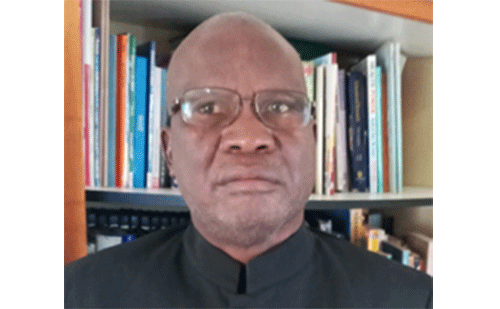The 27 November 2024 Namibian elections came and went with mixed reactions in many parts of the country and other regional and international quarters. The political election dust has not settled yet, as some political parties have taken the Electoral Commission of Namibia to court.
Contrary to this stand, some parties that gained fewer seats have already congratulated the incoming president. Whatever the case, it seems the Namibian nation has failed to take election lessons seriously from previous experience.
From the onset, the election process took the wrong direction by having so many political parties contesting in the race.
Twenty-one political parties contesting 104 seats for the National Assembly, of which 1.3 million people registered as voters. Democratic and constitutionally as it may be, this political kaleidoscope does not augur well for nationhood, which demands that citizens should pull together in terms of development and other national related issues.
Spreading and thinning the votes usually lead to unnecessary debates and arguments in the august house as issues are supposed to be collectively agreed upon and not spread according to different political ideologies.
Namibia should learn from other nations which usually file two main political parties for elections like the United Kingdom and the United States of America.
Nigeria has also joined the two main party-political giants to curb and discourage the proliferation of parties based on ethnicity.
Whereas it is the right of political parties to approach the Judiciary where it is alleged that irregularities were committed during the voting process, history and experience have shown that such steps have not led to fruition.
To try and stop the alleged irregularities, the parties should have taken uncompromising steps from the start of the whole election process by monitoring all moves taken by the Electoral Commission of Namibia. In addition, the parties should have mobilised extensively and come up with pledges which are realistic as opposed to ones presented by the ruling party.
Still, Namibia has many examples to learn from as far as electioneering machinery is concerned. Botswana has just completed a peaceful and non-argumentative election, while Mozambique ran its own election with calamitous consequences.
Namibia had a lot to learn from the two examples and perhaps with others from all over the world. Therefore, it is quite unforeseeable for Namibia after thirty-four years of nationhood to blunder in running a simple and fair election.
This is tantamount to the failure of the nation to learn simple and democratic election lessons which the future generations should follow.
Unfortunately, at this time and era, many politicians were using outdated tactics and strategies, which did not augur well for the political parties which applied them.
Many Namibians know their rights now and were assessing the performance and promises made by the running parties. In some cases, it was the failure of service delivery which cost some parties votes.
This factor should have been seen and remedied by parties instead of failing to tell the truth to the electorate. The older parties relied on their historical political past which is no longer an issue where the young people want bread on the table. To this factor, one should add the scourge of corruption which engulfed the ruling party.
Telling the electorate that not everybody in the ruling party was corrupt without much action against corruption was just paying lip ice service to the problem and Namibians can no longer be misled. The reduction in the number of seats from the ruling party should be a warning to the incoming president and her team that it is possible for the situation to be reversed and the opposition parties to take over the government.
Botswana has just demonstrated that and Zambia has done it three times.
The belief and slogans that the ruling party is bound to rule forever because of its role in liberating the country, is becoming illusive as shown during the recently held election.
In fact, no party has clung to power for eternity as evidenced by long serving parties which lost power in many parts of the world as reformers will always surface at any time.
No one is spelling doom for the ruling party, but it should prove itself during this tenure in order to have an overall command of the next election by keeping to its manifesto especially greasing the elderly with the N$3 000 payout every month.
The youth should also benefit greatly during this tenure of the ruling party, as this might guarantee its victory.
In the past years of its tenure, some of the key areas which affected the nation were not seriously addressed hence the reduction of parliamentary seats. The indication and long held view that political analysts and other academicians are not favouring the ruling party does not hold any water.
All parties this time around should prove themselves to be worthy of the political light and salt in order for the electorate to see the light and taste the fruition of their independence.
For thirty-four years of nationhood, Namibia should have learnt the art of good electioneering and be ready for any unforeseen circumstances which might be interpreted as maladministration of elections which is tantamount to rigging and stealing the votes.
As Ayi Kwei Armah the Ghanaian novelist once titled his book, ‘The Beautiful Ones Are Not Yet Born’, in this case meaning the days of free and fair in Namibia are yet to come.
Prof. Makala Lilemba is an academician, author, diplomat, motivational leader, researcher and scholar.



